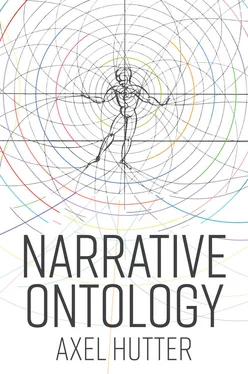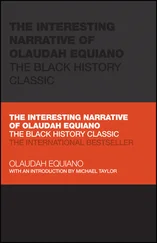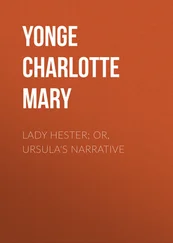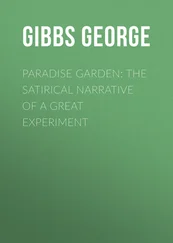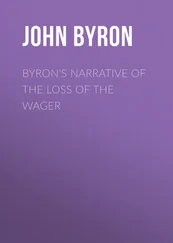In this way, the life stories re-narrated in the Joseph novel gain not only depth and meaning by linking present and past and understanding each one’s I as a ‘character role’, but also gain their very own coining, as the model of the past can never be copied exactly into one’s individual life but must instead always be adopted anew and in this sense repeated ( wiederholt ). The latter is invariably risky, since no variation of the original theme can rule out the possibility of changing into the exact opposite of the model. Thus, Esau is what he is because he lacks ‘any sense whatever for Abram’s lofty inheritance’, which is why he becomes the counter-model of the Abrahamic model. 3
Of course, this cannot remain concealed from Isaac, the father; he nonetheless evades the ensuing consequences as far as possible. Thus, it reads in the novel that Isaac ‘was silent, and when he spoke it was in words to this effect: “Mine is the red one. He is the firstborn, and I love him.” But Isaac – bearer of the blessing, keeper of the idea of God that Abram had struggled to win, the man whom his spiritual family saw as the son and reincarnation of the Chaldean – suffered greatly from what he was forced to see, or to close his eyes to in order not to see, suffered, too, from his own weakness, which prevented him from putting an end to this mischief by suggesting Esau take to the desert, as had been done with Ismael, his savagely beautiful uncle’ (159).
Isaac is the blessed one. He is the ‘keeper of the idea of God that Abram had struggled to win’, which – this much can already be said – is essentially linked with a spiritual aversion to the worship of nature and of images that is so close at hand for human being. Yet this Abrahamic aversion to the immediate is foreign to Esau. He is a ‘natural lad’ and the narrator of the Joseph novel does not pass up the pleasure of making this blatantly clear: with shaggy skin, having matured early, fruitful. In his cheerful worship of nature and images, he does not have the ‘weighty and pondering’ concerns of Jacob, and lives his life without a care.
The absence of the blessing cannot be brought out more explicitly. This must actually cause grief to Isaac, the blessed one, and cause him concern. What he sees also causes him pain, but he remains silent and takes flight in the role of a father who sticks by his firstborn while ceding the opposing role to his wife, who takes the side of the younger son. Both adopt, then, as father and mother, pre-coined roles in a play that is surely as old as humanity.
Isaac insists defiantly on his role as father: ‘Mine is the red one. He is the firstborn, and I love him.’ Still, it cannot remain entirely concealed to him that Esau is not blessed. But he closes his eyes before the obvious and refuses to see the character roles that have been assigned to Esau and Jacob. What prevents him? On this point, the novel is very subtle: ‘The “small” myth prevented it, Esau’s actual priority of birth prevented it’; ‘And so Isaac complained of his eyes’ (159). Here, a small myth and a great myth, a small model and a great model, are in conflict.
In this way, the narrative decentring of human existence, which makes the I walk in the ‘footsteps’ of past models, gains new complexity. It becomes patent that, to the human self that lives and understands its own present in the light of the past, it is not clear from the outset which coined model it ought to identify with. Isaac’s tragedy consists, namely, in that he is conflicted about which model he wants to understand as authoritative and as worth pursuing. In the end, as a father who ‘naturally’ sticks to the firstborn, he pursues the small model; and he closes his eyes before the obvious in order not to see the great model that is embodied anew in his two sons. The inner refusal to understand expresses itself externally in him becoming blind, in lamenting the weakness of his eyes.
At the same time, it is his weak eyes (in an outward sense) that make possible the original scene in the first place, in which Jacob wins the blessing ‘deceptively’ and the great myth prevails over the small myth – which Isaac, too, wants to bring about unconsciously through his ailing eyes. Isaac, according to the novel, ‘sought out darkness. Are we claiming that Isaac became “blind” in order not to see the idolatry practised by his daughters-in-law? Ah, that was the least of what it pained him to see, of what made the loss of sight desirable – for only in blindness could those things happen that had to happen’ (159).
The narrator of the Joseph novel interprets, then, the weakness of Isaac’s eyes ‘psychosomatically’. Isaac is working unconsciously towards undermining his conscious loyalty to the ‘small myth’, so that it does not in the end stand in the way of the big model of the blessing. The original scene in which the blessing is deceptively obtained under false pretences is thus desired just as much by Isaac – albeit unconsciously – as by Jacob and his mother. It can only be staged, however, if Isaac can barely see. Thus, he contributes his part in the success of the scene and suffers because of his eyes: ‘for only in blindness could those things happen that had to happen’.
Can one, then, in the end, still speak here of betrayal? Evidently not, for Isaac is deceived only insofar as he deceives himself by adhering ‘blindly’ to the small myth of the firstborn. The deception through Jacob is in truth, then, only the correction of a misunderstanding that Isaac himself wishes and unconsciously induces.
Selfhood as Self-Understanding
In the story of Jacob, the narrative sounding board, which is caused to resonate through the isolated events on the surface and which links them meaningfully through a common deeper dimension, acquires a first concrete elaboration. The protagonists of the narrative are shaped in their own self-understanding by precisely that fundamental distinction between meaning and being, significant model and temporal–individual repetition ‘in the flesh’, which for Thomas Mann is the principle of all narration and thus also the principle of narrative understanding. This principle is not only a principle of readings and texts, but in the first instance a life principle .
Thomas Mann makes this explicit in his talk ‘Freud and the Future’, which contains in an important part a commentary on the Joseph novel. 4He speaks of ‘the schema in which and according to which the supposed individual lives, unaware, in his naïve pride in being first and unique, of the extent to which his life is but formula and repetition and his path marked out for him by those who trod it before him. His character is a mythical role which the actor … plays in the simplicity of illusory uniqueness and originality, that he, as it were, has invented it all himself, with a dignity and security of which his supposed unique individuality in time and space is not the source, but rather which he creates out of his deeper consciousness in order that something which was once founded and legitimized shall again be represented and once more for good or ill, whether nobly or basely, in any case to conduct itself, in its own way, according to models’ (1947, 374–5).
It belongs essentially to the form of a genuine human life that it first gains its genuine reality where it ‘plays’ – that is, where it repeats – past models by interpreting and varying them, and then presents them on the stage of its present. If one misunderstands oneself exclusively as a unique individual, then one lives, according to Thomas Mann, clueless in one’s ‘naïve pride in being first and unique’. One first gains one’s own reality and character through the specific ‘role’ that one also plays when one plays ‘in the simplicity of illusory uniqueness and originality’.
Читать дальше
